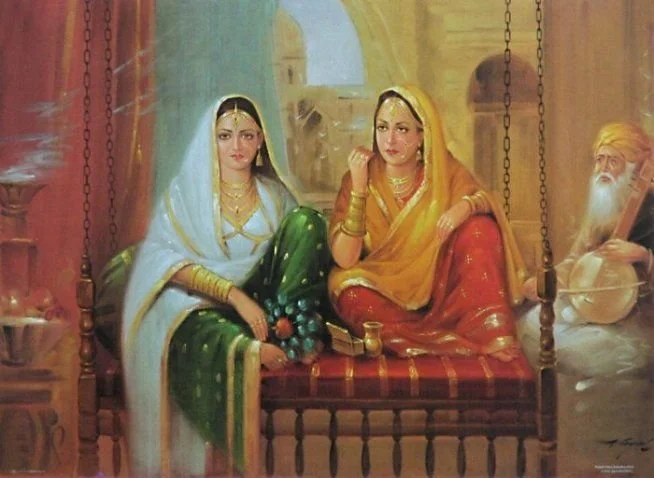Culturally-Aware Therapy for South Asian Men and Women
Navigating mental health as a South Asian adult can feel isolating—especially when trying to find a therapist who understands you and knows how to help you. This space is designed with you in mind. Rooted in cultural understanding and clinical expertise, our therapy practice supports South Asian men and women who want to feel more emotionally grounded, connected in their relationships, and aligned with their personal truth.
We understand the pressure to do it all, be strong, and meet everyone's expectations. You deserve therapy that sees the whole you—not just your symptoms. We approach your healing journey with compassion, cultural humility, and a deep respect for the nuances of South Asian identity, including religion, language, gender roles, and family systems.
South Asian Women
While these issues may overlap with those faced by women in other communities, they can manifest in distinct ways due to cultural pressures and traditional norms.
We help South Asian Women to:
Explore how your past, upbringing, and cultural background shape your current relationships and emotional patterns
Navigate modern dating, cross-cultural relationships, and pressure to marry or stay in unhappy marriages due to stigma around divorce or being single
Build healthier connections — with yourself, your family, your partner, and your community
Set boundaries and honor your personal needs, while balancing family expectations
Find a balance to succeed academically and professionally while also fulfilling roles as daughters, wives, and mothers
Work through anxiety, depression, grief, or physical symptoms tied to emotional stress
Navigate life transitions like marriages, breakups, loss, career shifts, parenthood, infertility, or choosing a different path from what’s “expected”
Release internalized shame around body image, gender roles, or sexuality
Reduce guilt especially if one’s lifestyle or beliefs differ from family or religious norms
Strengthen your self-esteem, reconnect with your voice, and move toward a more fulfilling balanced life
South Asian Men
The way South Asian men experience, express, or suppress them is often distinct due to ingrained beliefs about masculinity, family duty, and emotional expression.
We help South Asian Men to:
Build emotional fluency and form emotionally intimate relationships
Navigate modern dating, cross-cultural relationships, and cultural pressure to marry or “settle down”
Recognize stress, burnout, anxiety or depression
Work through pressure to succeed academically, professionally, and financially, which is often tied to self-worth, status, and family honor
Improve emotional communication in romantic relationships
Build better coping mechanisms
Build confidence, improve self-esteem, and trust yourself
Balance taking care of yourself and the weight of supporting your families
Gain a deeper understanding through exploring family of origin and cultural background
Release the burdens of silence and shame
Develop a more authentic and grounded version of yourself
South Asian Couples
South Asian couples face unique relational challenges that stem from the intersection of cultural traditions, family expectations, generational values, religion, and societal pressures. These issues can affect communication, intimacy, emotional connection, and long-term relationship satisfaction.
Common issues for South Asian couples:
Communication barriers where emotional openness or conflict is avoided
Cultural or generational gaps in beliefs - traditional vs. modern
Especially relevant for second-generation South Asians or intercultural couples
Navigating in-law dynamics, living in joint families, or loyalty struggles
Expectations around arranged marriages
Setting healthy boundaries with extended family
Gender role tension when both partners manage career and home life
Conversations around intimacy and sexual compatibility without shame
Migration and relocation stress related to visa/immigration status or moving away from loved ones after marriage
Religious or interfaith struggles
Postpartum and new parent stress
Creating a relationship grounded in shared values—not just inherited ones


